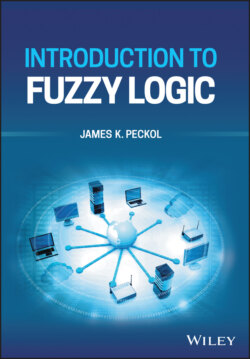Читать книгу Introduction to Fuzzy Logic - James K. Peckol - Страница 71
1.9 Expert Systems
ОглавлениеExpert systems are an outgrowth of postproduction systems augmented with various elements of probability theory and fuzzy logic to emulate human reasoning within constrained domains. The general structure of such systems is a decision‐making portion known as an inference engine associated with a hierarchical knowledge structure or knowledge base.
The knowledge base typically consists of the domain‐specific knowledge and at least one level of abstraction. This second level contains the knowledge about knowledge or metaknowledge for the domain. As such, this level of abstraction provides the inference engine with the criteria for making decisions or reasoning within the specific domain of application.
In some cases, these systems have performed with remarkable success. Most notables are Dendral, Feigenbaum (1969), Meta‐Dendral, Buchanan (1978), Rule‐Based Expert Systems: MYCIN Experiments, Shortliffe (1984), and Prospector, Duda (1978). In each case, there have been tens and perhaps hundreds of man‐years devoted to tailoring each to a specific task. Nonetheless, those could be integrated, with very little effort, as a brute‐force solution to reasoning. These systems have little ability to learn from previous experience and are extremely fragile at the boundaries of their knowledge.
It is clear that human understanding of human knowledge is in its infancy. Sundry schemes have been suggested and tried while attempting to explain and to emulate or simulate the human thought and reasoning processes we so casually take for granted. None has demonstrated, nor even proposed, a universal answer; they merely chip at small corners and suggest that the elephant is a thin line like a rope, round like a cylinder, or flat like a wall.
